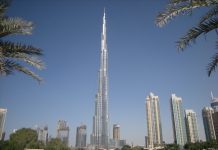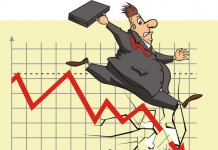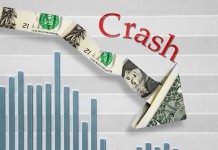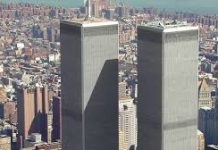Casual comment heralds a meltdown
When I lived in Riyadh, I used to play golf with the Managing Director of Saudi British Bank, the nationalized Saudi bank that was previously HSBC, who retained management control. I had read of an HSBC office in the U.S. losing ten million dollars on what were labelled “subprime” mortgages. This was the first time I had heard or used a term that was to become the symbol of all that was bad in banking and finance.
I asked him about the case and he explained what had been happening and he warned that HSBC were only a very tiny player in this market, but it could be a significant issue going forward. That was something of a prophetic statement.
That conversation took place in late 2006 and by the time the crisis hit in 2008 I had moved from Riyadh to Dubai. I had taken a position with Commercial Bank of Dubai in which I was to build a foreign exchange sales desk to take advantage of the banks very successful corporate banking franchise. It turned out to be the height of hubris on my part since you can lead a horse to water, but you cannot make it drink!
That is a story for another day!
Roots of Crisis ten years old.
The roots of the subprime crisis that heralded a global meltdown leading to unprecedented monetary policy decisions by Central Banks were strangely enough planted by the Federal Reserve. This happened ten years before when it agreed to bail-out LTCM which got into difficulties, as I described recently, following the Russian devaluation and default in 1998.
Banks started to believe, subconsciously in most but not all cases, that they were always going to be bailed out by Central Banks and the phrase “too big to fail” was born.
Some of the lending decisions that were made were incredible, and the risk management of banks was non-existent. It seemed in retrospect that risk managers in banks were being “snowed” by those creating new and complicated products that on the surface appeared to be highly profitable but were extremely risky. It was, in the U.S. at any rate, wholly dependent upon the continued increase in house prices and when that bubble burst, the whole edifice collapsed.
As with Bitcoin recently everyone apparently knew what was going to happen and it had turned into a kind of high-stakes pass the parcel. It was significant that no product existed that could create a short position in mortgage backed securities. That was surely a portent of disaster.
Dubai; Local difficulty goes global
 Sitting as I was in Dubai grappling with the whole “we don’t need to change we have “natural flow”” scenario I got into a conversation with a friend of mine. He is a Saudi and when he heard I had moved to Dubai, he rang me to ask where I was going to buy a property?
Sitting as I was in Dubai grappling with the whole “we don’t need to change we have “natural flow”” scenario I got into a conversation with a friend of mine. He is a Saudi and when he heard I had moved to Dubai, he rang me to ask where I was going to buy a property?
I was surprised by the question since I had no intention of buying a property to live in and told him so. He retorted that I was crazy, that property prices in the Emirate could only go in one direction. At that point a small alarm bell sounded in my ear!
I told him “I am an expat, a migrant worker. I could leave tomorrow for Qatar or Kuwait or anywhere I fancy. Buying property is a long-term commitment I am not prepared to make”. We hung up both puzzled by the others attitude but looking forward to meeting up the next time he was in Dubai.
As the months passed and 2007 became 2008 the world started to collapse around us, but Dubai continued to build and sell property. The crash, when it came, spawned some very odd stories. It had become the “fashion” to spend weekend mornings attending property exhibitions buying apartments off plan and accepting a 10% (or less) deposit was to be paid upon the commencement of the project. The intention was to “flip” the property before any further stage payment became due. When the market collapsed, I heard of an office boy who had a portfolio of fifty properties valued at twenty-two million Dirhams (close to six million dollars). His salary? A little over one thousand dollars a month.
This saga is to be continued tomorrow.
















